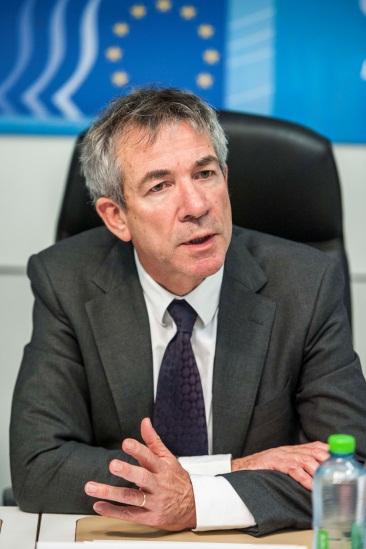Willy VAN PUYMBROECK, Active Senior, DIGIT, European Commission, shares the key takeaways from the fourth LEOS community webinar

Can you tell us a bit about yourself?
Allow me to introduce myself – I have been around for a while in Directorate-General for Informatics (DIGIT) and have returned as an Active Innovation Enthusiast Senior to devote some of my time to LEOS. The advantage of returning is that you can pick your dossier – the choice for LEOS was easy!
What were the key takeaways from the webinar?
On 21 September 2021, I participated together with 30 other enthusiast participants in the fourth LEOS community webinar. Well, in fact, I listened to two exciting presentations, saw a thrilling demo of LEOS 3.1.0. – which is great, a ‘polished product’ and ready for use - and chaired an interactive session, essentially to probe participants on their intentions to use LEOS and to contribute code.
After all, as Magda Hagiu - Deputy Head of Unit DIGIT B2, European Commission, indicated, LEOS is a flagship open source project in the Commission. However, as Anamarija Patricija Masten - Government Office for Legislation, Republic of Slovenia clearly explained the subject area of legislative drafting is not so easy to master. It requires bringing together IT experts with the legal profession to deliver modern IT solutions that allow ‘machines to process law’, cope with legacy build over decennia and the inherent complexity enshrined in law making. Easy or not, both presenters agreed on the necessity that law making needs a ‘digital transformation’.
All presentations from the event can be found on the event page here.
What are the lessons learnt?
What did I learn from ‘my’ interactive session? Well, LEOS has many nice features such as facilitate co-drafting and the drafting team focus. However, participants would appreciate to ‘receive more’. In particular, easy integration, more templates and e.g. support for multiple languages. The use of AI, starting with Natural Language Processing, to improve legal drafting is very promising. Two main messages transpired, i.e. the daunting task to make the cultural change needed for the use of LEOS to happen in law-making and the need for an appropriate development environment for ‘all to contribute’. On the ‘logistics’ of the LEOS Community Seminar the poll indicated that a meeting every four months with a focus on the progress in LEOS and more general to discuss the digital transformation of law making is the way forward.
What are the next steps?
We will follow-up on your feedback. In particular, we will focus on the provision of a truly open-source LEOS development environment. In addition, we will complete the study on ‘Drafting legislation in the era of Artificial Intelligence and digitisation’. We referred to this study at the previous Webinar and will report on the results in the next one. See you at the next Webinar scheduled for early 2022.

